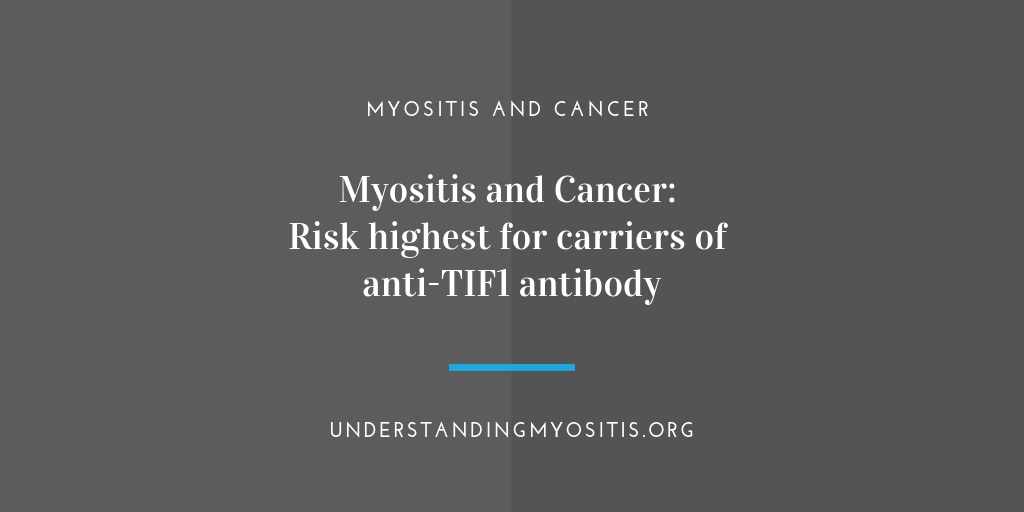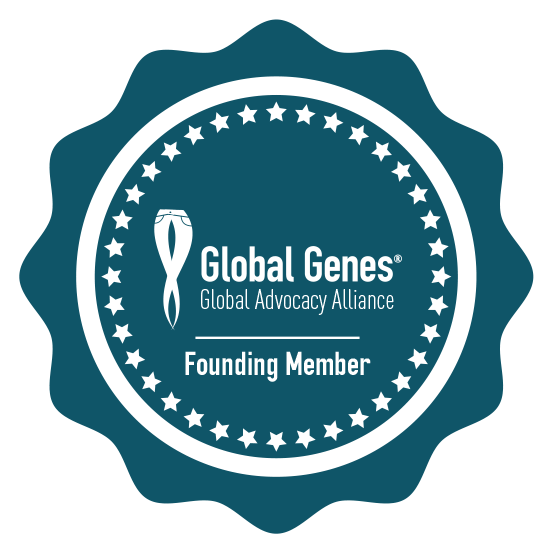Myositis and Cancer: Quantifying the Link – Risk highest for carriers of anti-TIF1 antibody
An overview
Dermatomyositis (DM) is a form of Idiopathic Inflammatory Myopathy (IIM) that is characterized by muscle inflammation and weakness along with skin rashes. Patients with IIM, including DM, are sometimes found to also have specific antibodies in their blood which can help to characterize and determine appropriate treatments for the specific disease. Previous studies have found a higher risk of cancer in patients with DM. This study investigated DM patients with a specific antibody, anti-TIF1, to understand the associated risk of cancer.
The research was conducted as a retrospective study with a cohort of 263 DM patients from 74 centers from the UK Myositis Network over a median (midpoint) period of 11 years. The research found that DM patients with the anti-transcriptional intermediary factor 1 (anti-TIF1) antibody were more than three times more likely to develop cancer than DM patients without the anti-TIF1 antibody. More specifically, 38% of the patients who had the anti-TIF1 antibody developed cancer, compared to only 15% of DM patients without the anti-TIF1 antibody. Furthermore, the researchers also determined at what point the cancer developed, the ages at which cancer developed and the types of cancer that developed, all of which would aid medical professionals in their screening and treatment of DM patients.
Of the 263 patients studied, 55 were anti-TIF1 antibody positive, most were women, and the median age at DM diagnosis was 47. Results for the point at which cancer developed for the study period were as follows:
| Cancer 3 Years Prior to DM Diagnosis | Cancer 3 Years After DM Diagnosis | Cancer > 3 Years after DM Diagnosis | |
| Anti-TIF1 Positive | 13% | 26% | 0% |
| Anti-TIF1 Negative | 4% | 6% | 14.1% |
None of the patients with the anti-TIF1 antibody who were diagnosed with DM when they were younger than 39 years old developed cancer. For those with the antibody who were 39 years old or older when they were diagnosed with DM, 53% developed cancer.
Results for the most common types of cancer between the two groups were:
| Anti-TIF1 Positive | Anti-TIF1 Negative |
| Breast cancer (33%) | Breast cancer (25%) |
| Ovarian cancer (19%) | Lymphoma (13%) |
| Lymphoma (14%) | Bowel cancer (13%) |
Previous studies have noted the increased risk for ovarian cancer among women with DM, but this is the first study to determine that the risk was primarily among the anti-TIF1 positive group, “suggesting that the true association between DM and ovarian cancer may be through possession of anti-TIF1 antibodies. Clinicians should therefore apply increased vigilance for potential ovarian pathology in anti-TIF1 antibody positive cases,” the researchers wrote.
Ovarian cancer was significantly higher in the anti-TIF1 positive group at 19% compared to 2% in the anti-TIF1 negative group.
In conclusion, this research provided specific findings that quantify the association of cancer risk with DM patients, particularly those with anti-TIF1 antibodies. The results indicate practical recommendations that include cancer screening for anti-TIF1 antibody positive DM patients beginning at age 39, with special attention to ovarian cancer. The authors suggest that their results indicate that IIM may be a paraneoplastic reaction (i.e., a consequence of cancer in the body) as the immune system attempts to remove a cancer from the body.
As always, there are limitations to any research. In this case, survival bias is a potential factor. In this case, survival bias is a logical error that focuses on people who survived the disease long enough to be included in the study. Additionally, there was some ambiguity in the date of onset of DM in some patients which could impact the results.
Read the full article here:
Walsh, N. Myositis and cancer: Quantifying the link – risk highest for carriers of anti-TIF1 antibody. MedPage Today Web site. https://www.medpagetoday.com/rheumatology/generalrheumatology/76849. December 11, 2018. Accessed December 14, 2018.
Source Reference:
Oldroyd A, Sergeant JC, New P, et al. The temporal relationship between cancer and adult-onset anti-transcriptional intermediary factor 1 antibody-positive dermatomyositis. Rheumatology 2018. https://academic.oup.com/rheumatology/advance-article/doi/10.1093/rheumatology/key357/5233872










